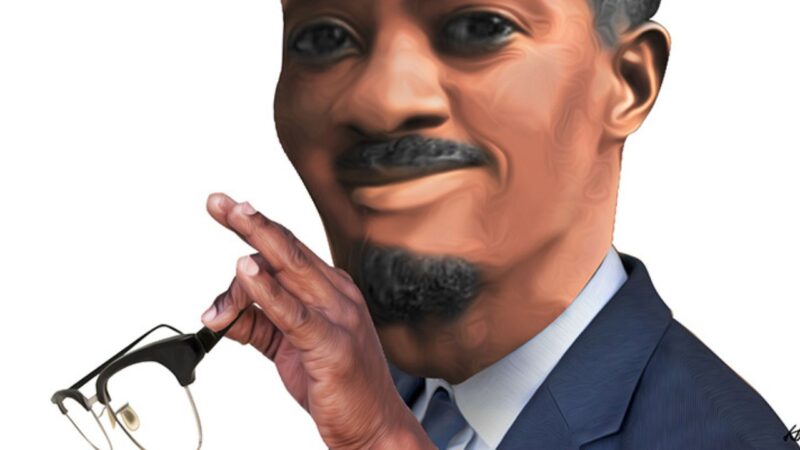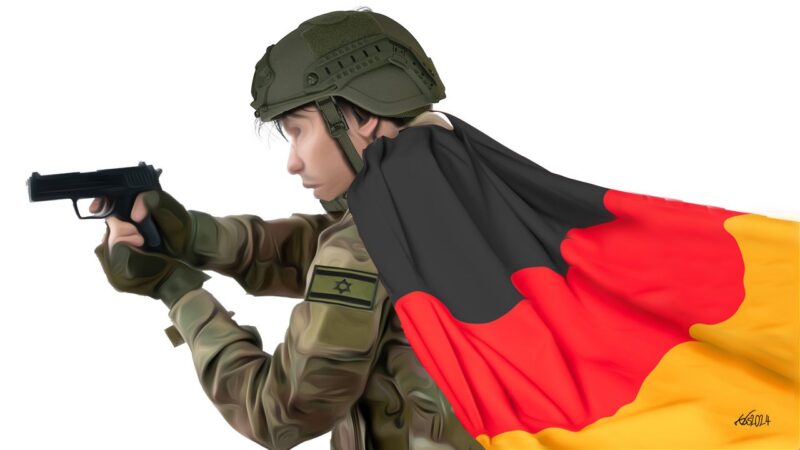With a spring in his step, fresh from defending – for the second time in two years after having fallen short in 2016 – a PhD thesis on “The impact of human activities on riparian reserves at Saiwa Swamp in Trans Nzoia County” at the University of Nairobi’s School of Biological Sciences, and in a week when his portrait was plastered over all the Technical, Vocational Education and Training (TVET) newspaper adverts, William Samoei Ruto, Kenya’s deputy president, was at it again: caricaturing, castigating, and scapegoating the liberal arts for the failures of Kenya’s labour market, and imagining a Chinese Wall between university liberal arts education and TVET education, where none exists nor ought not to be built.
Perhaps buoyed up by the ease with which he’s wedged PhD studies (he failed to graduate between a busy weekday schedule as the deputy president and weekend harambees, Ruto couldn’t have picked a better occasion to devalue the study of liberal arts than the launch of the TVET policy at the serene campus of Kenya Teachers’ Technical College (KTTC) in Gigiri.
Ruto said: “It’s acquisition of knowledge, skill and competences that will make a difference. We must deliberately move our education system in that direction…Not everybody is good in history, not everybody is good in geography and mathematics… People are gifted differently… You don’t have to know English to paint. There is no painting in English my friends. Painting is painting….”
He then singled out the discipline of history for ridicule, adding that: “I was a very good student of history myself, but while it is okay for historians to tell us how Vasco da Gama came, went somewhere and discovered this, he died. We need the gentlemen or the ladies who will fix our sewerage system or electricity when something is wrong.”
It’s tempting to dismiss Ruto’s criticism of liberal arts education as misinformed or the ranting of a bully who’s never seen a pulpit he didn’t want to mount. It’s also easy to brush off his remarks as those of an intellectual simplifier, who, it seems, thinks that the study of history is merely remembering the names of notable individuals, places and dates.
Exasperated, one Dr Amunyunzu-Nyamongo, an anthropologist whose work cuts across health, social protection and development, wondered on Twitter: “I am a trained anthropologist up to PhD level. Should I worry about my future since this is one of the courses declared redundant by the Deputy President of Kenya? Asking for all anthropologists and those sympathetic to our profession.” Professor Peter Mbithi, the Vice Chancellor the University of Nairobi, tweeted in response: “Needless to worry, you are a global citizen.” Yet Ruto’s words will worry Kenyan citizens who have no exit option out of a poorly thought-out, though politically expedient, shift in education policy.
It’s tempting to dismiss Ruto’s criticism of liberal arts education as misinformed or the ranting of a bully who’s never seen a pulpit he didn’t want to mount. It’s also easy to brush off his remarks as those of an intellectual simplifier, who, it seems, thinks that the study of history is merely remembering the names of notable individuals, places and dates.
As Wandia Njoya points out, this says something about Ruto’s crisis of identity, and why he may have missed some of the benefits that a good liberal arts education can provide. It also reflects the Jubilee government’s statecraft and its concerted effort to create an educational system that reduces Kenyans to automatons, presumably the ideal citizen to deliver the elusive double-digit GDP growth despite Jubilee’s continuing mismanagement of the economy.
As Dr Njoya says, Ruto seems undecided whether he’s a hustler or an aristocrat; he is caught between frequent visits to roadside kiosks for PR stunts, on the one hand, and hopping into his chopper to show off power and privilege, on the other. He is torn between embracing the grit of those who roast maize by the roadside to eke out a living in hard economic times and holding them up as symbols of a failed education system.
Yet for a self-confessed “very good student” of what seems to have been a very bad history and someone who thinks studying is rote learning of “facts”, Ruto’s inability to stick to the hustler-PR script betrays a strikingly short memory. Arguably, there is nothing in his own public service record that demonstrates that he’s ever brought his expansive knowledge on botany and zoology either as a legislature or a cabinet minister or a deputy president to bear upon law- or policy-making.
Although Ruto presses universities hard to teach courses that are directly linked to industries, his own pursuit of botany and zoology seemingly exemplifies the pursuit of education for its own sake. That is a good thing. But it shouldn’t be the privilege of a few, and a choice a politician like Ruto makes for the others.
The deputy president singled out history for ridicule because since the rise of neoliberal education reforms, departments of liberal arts at public universities have been under pressure to justify their existence as public-funded disciplines, to show the products they sell in the market, and to demonstrate that there is demand for the subjects they teach. Some, like the good old University of Nairobi’s Department of History and Archaeology, even embraced studies such as tourism. But that, too, seems not have gone far enough for politicians who don’t know how to value skills such as critical thinking, analytical writing, creativity, and imagination.
Yet the burden that Ruto places on the shoulders of Kenyan students and universities is a burden he’s never borne. Ruto’s biography suggests that sometimes there is no necessary connection between a degree course one pursues at a university and how one earns a living or notoriety. Therefore, to measure the success of a university by a perfect fit between disciplines and industry would be too rigid a yardstick for measuring returns on university education.
The deputy president singled out history for ridicule because since the rise of neoliberal education reforms, departments of liberal arts at public universities have been under pressure to justify their existence as public-funded disciplines, to show the products they sell in the market, and to demonstrate that there is demand for the subjects they teach.
Still, Ruto’s glee at the fact that “this year we have more students joining TVET than university” implies that the Jubilee government has reset the education system back to its immediate post-colonial setting. In parodying the British system, Kenya’s education system was designed precisely to produce a limited number of graduates – a few queen bees and thousands of worker bees. Under the onslaught of neoliberalism, political leaders forgot the essence of the model and turned polytechnics into instruments of patronage (ethnic universities). They sold only the prestige of a university degree without due regard to class size, library resources, and optimum student-teacher ratio. As a result, both the value and prestige of public university education took a beating.
When Ruto says, “We need the gentlemen or the ladies who will fix our sewerage system or electricity when something is wrong”, he is not just projecting Britain’s class-obsessed, industrialised society onto Kenya’s denuded industrial base, he is also reflecting the attitudes of the privileged few who are incapable of empathy.
Moreover, his insinuation that painters do not need a good command of the English language to ply their trade in a country whose laws, by-laws, public policies and tender documents are mostly written in English is a call for a civically incompetent citizen. His preference is for the type of maleducation that would make it hard for a TVET graduate to question and to hold leaders to account.
When Ruto says, “We need the gentlemen or the ladies who will fix our sewerage system or electricity when something is wrong”, he is not just projecting Britain’s class-obsessed, industrialised society onto Kenya’s denuded industrial base, he is also reflecting the attitudes of the privileged few who are incapable of empathy.
Perhaps it never occurred to the deputy president that in a country where one frequently encounters billboards in the countryside with warnings like “This is not an open defecation area” and where urban slums lack even pit latrines, the “we” who need sewerage systems fixed excludes the majority of Kenyan citizens, and that constructing an inclusive sewerage system, let alone fixing it, should come first.
But that’s hardly surprising. The undergraduate student of Ruto’s era imbibed more than the technical competence offered through the open curriculum. Its hidden curriculum taught obsession with privilege, entitlement, status, as well as detachment from the realities of the majority. The University of Nairobi – whose founding vice-chancellor, Dr. Josephat Karanja, as Kamuhanda Byaruhanga tells us, was one of six students at Makerere College who led a strike in 1952 demanding European instead of African food – was designed to alienate its graduates from their rural and working-class roots.
True to the kind of food that Karanja and his colleagues wanted at Makerere, University of Nairobi students were fed a four-course meal that sometimes included ice cream, jelly or bread pudding for dessert. Students also received a stipend that could buy drinks at any of Nairobi’s five-star hotels.
Some students cultivated a taste for the finer things, a comfortable city life and indifference to the realities of the majority of their compatriots. Many of the conformists, those whose mantra was “we want to finish and go”, cultivated urban tastes that could only be satiated when they became heads of department in government, holding the much sought-after “Authority to Incur Expenditure” or, as Kwendo Opanga renders it, “Authority to Initiate Eating”. Others rebelled, dreamt and imagined not only their own freedoms, but also the freedoms of workers and peasants.
Others like Ruto gatecrashed the party of the sons of privilege in the notorious Youth for KANU 92 and became errand boys for the likes of Cyrus Jirongo. Ultimately, having learnt the tricks of turning access to the corridors of power into real estate, their ambitions grew. Today Ruto is so filthy rich that he reportedly doesn’t think twice about paying Sh100,000 for a cup of tea and a mandazi. Yet he is still considered a parvenu sitting among the old money in the hotels of Nairobi. To them, Ruto is still an errand boy, often sent to deflect attention away from the disastrous failures of the Jubilee government or to hawk the latest snake oil like TVET.
Ruto may publicly ridicule liberal arts education and find “over 1,000 students learning sociology and anthropology…graduates many of whom cannot be placed in a proper job environment” but privately, Jubilee securocrats are enlisting scholars in these disciplines to causes such as countering violent extremism.
Others like Ruto gatecrashed the party of the sons of privilege in the notorious Youth for KANU 92 and became errand boys for the likes of Cyrus Jirongo. Ultimately, having learnt the tricks of turning access to the corridors of power into real estate, their ambitions grew. Today Ruto is so filthy rich that he reportedly doesn’t think twice about paying Sh100,000 for a cup of tea and a mandazi.
Jubilee’s policy responses to youth unemployment, notably TVET as the study of “technical” skills only, will likely reproduce the usual outcome: a windfall for a few. Yet a well thought-out and taught liberal arts curriculum, which teaches critical thinking, creativity, imagination, and human values such as compassion, would not only be more cost-effective, but would also reduce Kenyans’ vulnerability to political and religious charlatans, whatever garb or gown they adorn. Ruto rants against liberal arts students because it is easy to blame the victims of a dysfunctional economic system.








